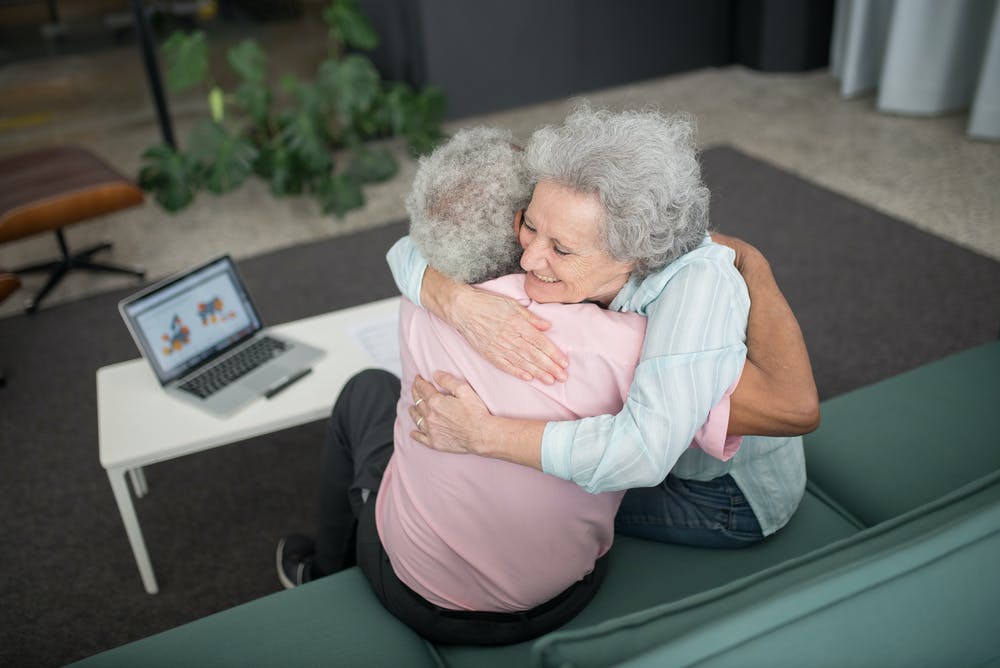Parkinson’s disease is one of the main brain disorders that affect millions of older Americans. Because it has a large impact on their ability to do daily activities, it also hampers their well-being significantly. This is why providers of hospice care services pay special attention to patients with the condition. Here are some guidelines on how you can help relatives who have the disease cope with it better.

What Is Parkinson’s Disease?
According to the latest statistics, approximately 60,000 senior Americans are diagnosed with Parkinson’s disease yearly. Because of its high prevalence, early detection becomes crucial for better managing it. Here, understanding what it actually is will also help when creating a management plan for your relative.
What Causes Parkinson’s Disease
Parkinson’s occurs when the nerves of the brain’s basal ganglia get damaged or die. This part controls the movement of muscles through the release of dopamine. When neurons die, the production of dopamines lessens, resulting in erratic brain activity.
Scientists don’t know yet what exactly causes the death of nerve cells. But they noted that some gene mutations can potentially trigger the disease. They also identified other genetic variations that might increase the risks for the disorder. Some environmental factors can trigger the disorder. But these have relatively small risks.
The Risk Factors
Age remains the biggest risk factor for the onset of Parkinson’s disease. The disease typically starts to manifest when people hit the age of 60. Men are 50% more likely to develop the disorder than women. However, studies indicate that the risk in women can increase significantly with age.
As mentioned earlier, heredity also plays a role in the possible onset of the disease. If your family already has a history of Parkinson’s, you may also likely have the risk. Additionally, any previous brain injury might also increase the risk.

Parkinson’s Disease Stages
One thing worth noting about Parkinson’s disease is that it can progress at different rates in individuals. Nevertheless, there are several broad stages that it goes through. The kind of motor symptoms that are present designates what stage your loved one’s condition is in.
Mild Stage
During the initial onset of the disease, motor symptoms start appearing but don’t necessarily affect your daily activities. Some of the early symptoms of Parkinson’s Disease that you might notice include:
- Your arms don’t swing as freely as before when walking
- Your legs feel heavy or stiff
- Handwriting becomes different or smaller
- Posture becomes slightly stooped
- You might find it hard to make certain facial expressions
Often, some of the symptoms might only show up on one side of your body, such as tremors in your hand. You can deal with these easily through the use of medication.
Moderate Stage
This stage typically happens 3 to 7 years after the initial symptoms. At this point, these symptoms begin affecting your ability to do daily activities. You might also notice the following changes.
- Changes in the way you speak, such as having a softer voice
- Slower movement
- Having a hard time lifting your feet when you start walking
- Small shuffling steps
- Trouble with balance and coordination
- Difficulties when swallowing
Because of the significant impact on your ability to move around, there is an increased risk of accidental falls. Additionally, you might start noticing that the medicines you take to control the symptoms start wearing off faster between doses.
Advanced Stage
At this point, the symptoms become so severe that they debilitate your ability to perform activities. This stage is also when serious disabilities start to set in. Because of that, you might be bedridden or need a wheelchair. Additionally, you will need help in doing even the most basic daily activities.
In this stage, medication becomes even less effective, requiring other means of intervention. Note that some people might not reach this stage. However, they might still require some form of assistance to perform certain activities.
Non-Motor Symptoms Of Parkinson’s Disease
Motor symptoms are the more noticeable signs of the condition. However, there are also non-motor ones that occur. These can include:
- Loss of smell
- Low blood pressure when standing up
- Constipation
- Pain
- Sleep issues
- Depression
These symptoms are not tied to any specific stage and might even start showing up before any motor symptom does. If they are severe, these symptoms may be more likely to cause disabilities than motor symptoms.
Aside from the above, a senior might also develop dementia or psychosis alongside Parkinson’s. This does not mean that having Parkinson’s will directly lead to these other conditions. Nevertheless, you would still want to take the possibility into account when creating your management plan.
Helping Patients With Dementia

Helping Seniors With Symptoms Of Parkinson’s Disease
Due to it being a progressive condition, there is currently no known cure for Parkinson’s. Instead, much of the treatment focuses on reducing the symptoms through medication.
Some of the medications that doctors might prescribe for a Parkinson’s patient include:
- Carbidopa-levodopa: A natural chemical that gets converted to dopamine. This stabilizes its levels in the brain.
- Dopamine agonists: These are chemicals that mimic the effects of dopamine, serving as additional means of regulating brain activities.
- MAO B inhibitors: These help prevent the breakdown of dopamine in the brain.
- Amantadine: This medicine can help reduce the symptoms of early-stage Parkinson’s.
To get the most out of these medications, your elderly loved one should take them diligently. When you sign up for hospice care services like Amavi, the care staff assigned to your loved one will monitor their intake schedule. This way, you ensure that they won’t miss a dose.
Helping Your Loved Ones Live With The Disease
There are various other ways you can help your loved ones deal with the condition beyond medication. Regulating their diet is the first one you can do. The idea here is to go for a low protein diet. This is to ensure that their bodies can better absorb levodopa. Doctors will typically recommend patients limit their intake to just 12% of their daily calorie needs.
Improving Balance
Since balance is one of the areas that Parkinson’s can affect, helping your elderly loved ones train their bodies for it would benefit them greatly. Some ways that you can help them are.
- Guiding them to take large steps and maintain proper heel-toe form
- Ensuring that their legs are 10 inches apart when walking
- Helping them maintain a steady rhythm
You can do this as part of their regular exercise routine. Aside from that, you can incorporate low-impact exercises like yoga or tai chi to help your loved ones loosen their stiff muscles. Amavi’s hospice care services can provide a physical therapist to help you conduct their exercise program.
Additional Activities
Beyond exercise, encouraging your elderly loved ones to indulge in other activities will help them retrain their motor skills. Some such activities they can explore are.
- Crafting
- Writing
- Dancing
- Painting
- Volunteering
Beyond the physical benefits, these activities are also mentally stimulating. It will help your elderly loved ones take their minds off the symptoms and refocus their attention. Additionally, these will provide long-term benefits.

Overcome Parkinson’s Disease With The Best Hospice Care Services
We at Amavi understand how hard living with the progressive Parkinson’s disease stages is. Thus, we have dedicated our efforts to providing the best hospice care service to help your senior loved ones deal with it. Sign up with us today and give them back their freedom to move.
